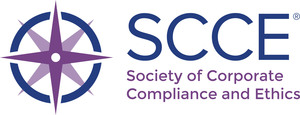
SCCE Survey: Antitrust IS a Compliance Concern
Lack of Government Credit to Antitrust Compliance A Disincentive to Diligent Programs?
MINNEAPOLIS, June 14, 2012 /PRNewswire-USNewswire/ -- The management of antitrust compliance is generally undefined and potentially in a silo, isolated from other risk areas, and solutions to antitrust concerns are seemingly underdeveloped, according to the results of a survey which was conducted in March and April 2012 by the Society of Corporate Compliance and Ethics (SCCE).
Survey respondents clearly indicated that compliance programs would benefit from greater governmental direction and incentives for effective antitrust compliance programs. Current Department of Justice policy is to give credit only to the first corporation that confesses to an antitrust crime, regardless of any compliance program. Unlike other areas of enforcement, no credit is given for having an effective compliance program. This may be providing a disincentive for corporations to have strong compliance programs in this important risk area.
The results of this survey evidence a dangerous circumstance and sheds light on a key compliance challenge for business across the globe.
"The fact that the Antitrust Division of the Department of Justice will not recognize and reward corporate America's efforts to prevent, find and fix legal compliance issues through the use of diligent compliance programs should not reflect negatively on Main Justice or any other Division of Justice. The rest of Justice supports and recognizes organizations who implement compliance programs and does not take the remarkably strange position the Antitrust Division has taken," said Roy Snell, Chief Executive Officer, SCCE.
The numbers
A mere 43 percent of respondents reported antitrust compliance is the responsibility of the compliance department; 28 percent indicate it is the responsibility of the legal department; 13 percent believe the organization does not have antitrust risk, and the remaining 16 percent indicate ownership of antitrust compliance is either undefined or unknown.
The survey did find that most organizations do communicate antitrust policies to employees; 92 percent report it to be included in their organization's code of conduct. In addition, many respondents report that their employer has an additional antitrust policy document and includes it in compliance training. Sixty percent noted that separate antitrust compliance training is offered to select employees. It is important to point out that only 22 percent of those surveyed reported that their company requires training as a condition for attending high-risk gatherings of competitors, such as trade associations.
Antitrust compliance auditing, a central component of determining legal compliance, appears to be minimal, with 64% of survey respondents reporting that no comprehensive audits are performed.
More than two-thirds of respondents indicated that government actions to better define compliance programs would be beneficial. Additionally, the government taking compliance programs into account when deciding on enforcement actions, and offering penalty reductions to companies that have compliance programs was given high ratings for value by 88 percent of respondents.
About the SCCE
The Society of Corporate Compliance & Ethics (SCCE), headquartered in Minneapolis, MN, is a non-profit professional membership organization made up of compliance and ethics professionals. SCCE exists to champion ethical practice and compliance standards in all organizations and to provide the necessary resources for compliance professionals and others who share these principles. Visit the SCCE website at http://www.corporatecompliance.org, Tel: 888-277-4977. Society of Corporate Compliance & Ethics is located at 6500 Barrie Road, Suite 250, Minneapolis, Minnesota 55435.
E-mail: [email protected]
SOURCE Society of Corporate Compliance and Ethics (SCCE)






Share this article